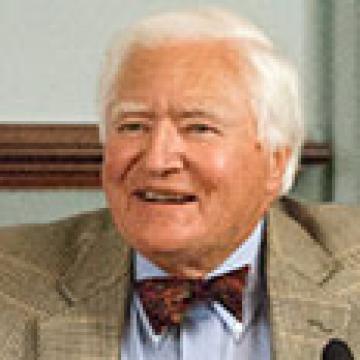Millard Fillmore: Foreign Affairs
Despite the congressional debates that raged on over the issue of slavery during Millard Fillmore's term in office, the President had a foreign policy agenda that emphasized expanding trade while limiting American commitments outside the Western Hemisphere.
Asia Pacific: Japan and Hawaii
For nearly three centuries, Japan had been a completely isolated nation. American shipping interests, however, identified the nation as a prime location to stop and resupply their ships on the way into China and Southeast Asia. Great Britain's opening of China some years earlier had illustrated the benefits of new trade markets. Assisted by Secretary of State Daniel Webster, Fillmore ordered a trade mission to Japan by Commodore Matthew Perry. Although the mission was not fully completed until the succeeding administration of Franklin Pierce, the policy did open Japan for trade with the rest of the world. The consequences of this mission, both positive and negative, were the work of Fillmore.
Elsewhere in the Pacific, Fillmore showed strong resolve in preventing the Hawaiian Islands from falling into either French or English hands. When the French government tried to force an annexation agreement on Hawaii's king, Fillmore warned Napoleon III in no uncertain terms that the United States would not stand for any such action.
Central America and the Caribbean
Taylor had signed the Clayton-Bulwer Treaty of 1850 with England. This agreement prevented both the U.S. and Great Britain from claiming further territories in Central America. Both nations, however, continued to angle for influence in the region and to control the construction of a future canal project joining the Atlantic and Pacific Oceans there. Fillmore dispatched warships to protect American merchant vessels from British interference. He also took a hard stand against private American interests sending mercenaries of their own into the region to gain influence.
Agricultural interests in the American South, growing weary of defending their slave-reliant economy to the rest of the nation, had been interested in expanding their slave-based economy into the Caribbean nation of Cuba for years. Taylor's predecessor, James Polk, had tried in vain to purchase the great island from the Spanish. Early in the Taylor administration, a Venezuelan named Narciso Lopez had raised an army of several hundred Americans, mostly adventurous and speculative Southerners, with the intention of invading Cuba. Federal authorities attempted to prevent Lopez from leaving American shores with this force, but he managed to sail out of New Orleans. What followed was remarkably like the Bay of Pigs invasion a century later and equally ill-fated. This "filibustering" expedition managed to land in Cuba, but it failed to generate a rebellion. A second invasion during the summer of 1851 eluded Fillmore's attempts to stop it. This time, the invader's luck ran out completely. Routed on the beaches by the Spanish, the insurgents were either executed—their leader, Lopez, among them—or enslaved.
The incident, rightly or not, was blamed largely on Fillmore. Southerners condemned the President for not supporting the invasion; Northern Democrats criticized Fillmore for his subsequent apology to the Spanish. Meanwhile, the British and French sent warships to guarantee Spanish sovereignty over Cuba. Fillmore had his Secretary of State Edward Everett, who replaced Webster in 1852, warn the Europeans that under certain circumstances control of the island "might be almost essential to our [America's] safety." This tough talk against the European powers managed to win Fillmore a respite from his critics.
Eastern Europe
Fillmore did little to align the United States against repressive imperial governments in Europe. When Austria protested that the United States was siding with Hungarians in their attempts to free themselves from the Hapsburg empire, Fillmore enunciated the doctrine from his annual message of 1850 that the United States believed in the inalienable right of each people to establish "that form of government which it may deem most conducive to the happiness and prosperity of its citizens. . . ." Unfortunately, he did not back these words up with concrete actions. In 1851, Congress invited the Hungarian patriot Kossuth to visit the United States. Fillmore and Secretary of State Webster, worried that the American people might want the U.S. to back Kossuth openly, warned him at a state dinner that although they supported his efforts at national liberation, the effort would have to be carried out solely by the Hungarians. Democrats, in turn, created a "Young America" movement to support Eastern European liberation, but it too was designed more to exploit domestic politics than to influence events in Europe.
